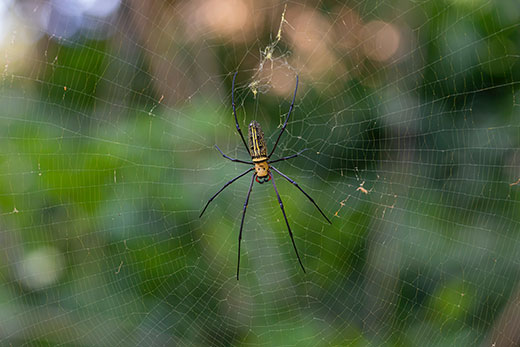
Garden spiders eat insects and are harmless to humans.
Spiders are beneficial to the garden
K-State horticulture expert suggests leaving them alone
September 10, 2020
MANHATTAN, Kan. – Spiders may seem creepy and -- to some -- just downright scary, but when they set up shop in your garden, they’re best left to do their thing.
That’s because most spiders that live in home gardens are beneficial and harmless to humans, said Kansas State University horticulture expert Ward Upham.
“These garden spiders feed on insects and are considered beneficial to the garden,” he said.
Depending on one’s viewpoint, two spider varieties common in Kansas are either eerie-looking…or, perhaps, magnificent.
The yellow garden spider has a black abdomen with yellow to yellow-orange markings. Its black legs have a yellow or reddish band.
The banded garden spider has numerous bands on both the abdomen and legs. Those on the abdomen are alternating white and dark bands. The legs have alternating black and orange bands.
“Both of these spiders are orb weavers that spin large webs with the typical spider web shape,” Upham said. “Also, both have poor eyesight and are extremely sensitive to vibrations that pass through the web and use this sensitivity to capture their prey.”
Upham and his colleagues in K-State’s Department of Horticulture and Natural Resources produce a weekly Horticulture Newsletter with tips for maintaining gardens and home landscapes. The newsletter is available to view online or can be delivered by email each week.
Interested persons can also send their garden- and yard-related questions to Upham at wupham@ksu.edu, or contact your local K-State Research and Extension office.

